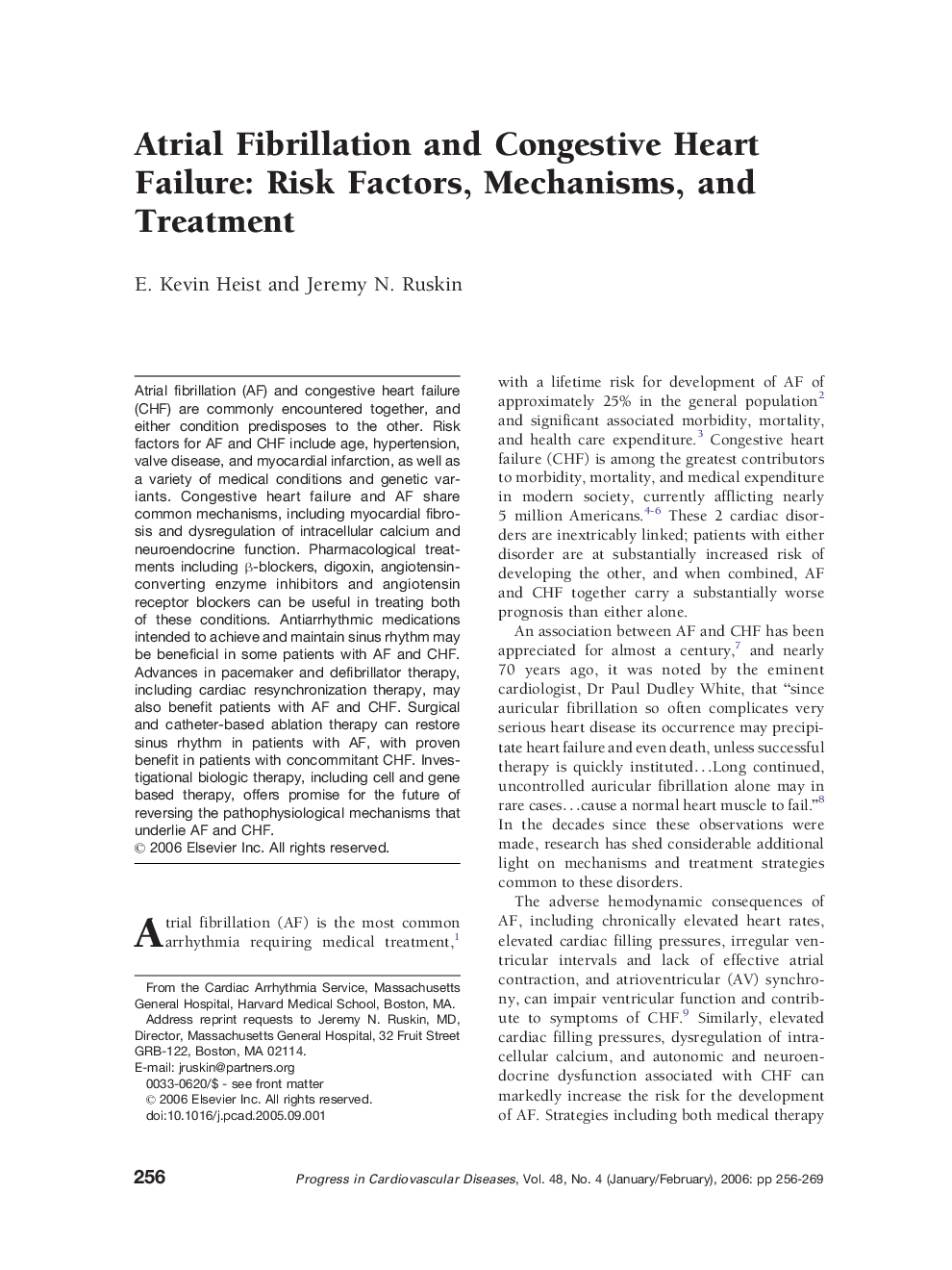| Article ID | Journal | Published Year | Pages | File Type |
|---|---|---|---|---|
| 3007026 | Progress in Cardiovascular Diseases | 2006 | 14 Pages |
Atrial fibrillation (AF) and congestive heart failure (CHF) are commonly encountered together, and either condition predisposes to the other. Risk factors for AF and CHF include age, hypertension, valve disease, and myocardial infarction, as well as a variety of medical conditions and genetic variants. Congestive heart failure and AF share common mechanisms, including myocardial fibrosis and dysregulation of intracellular calcium and neuroendocrine function. Pharmacological treatments including β-blockers, digoxin, angiotensin-converting enzyme inhibitors and angiotensin receptor blockers can be useful in treating both of these conditions. Antiarrhythmic medications intended to achieve and maintain sinus rhythm may be beneficial in some patients with AF and CHF. Advances in pacemaker and defibrillator therapy, including cardiac resynchronization therapy, may also benefit patients with AF and CHF. Surgical and catheter-based ablation therapy can restore sinus rhythm in patients with AF, with proven benefit in patients with concommitant CHF. Investigational biologic therapy, including cell and gene based therapy, offers promise for the future of reversing the pathophysiological mechanisms that underlie AF and CHF.
